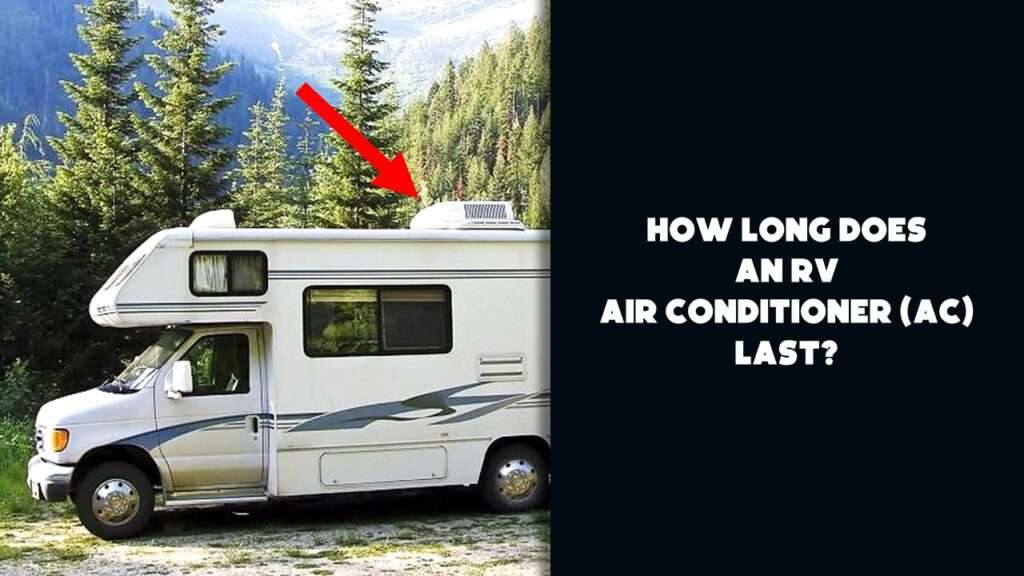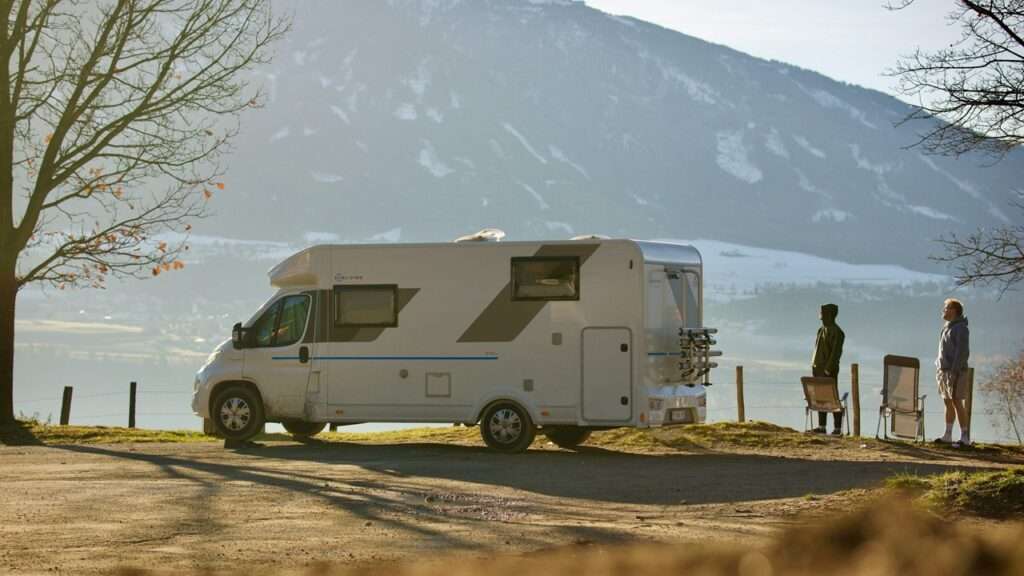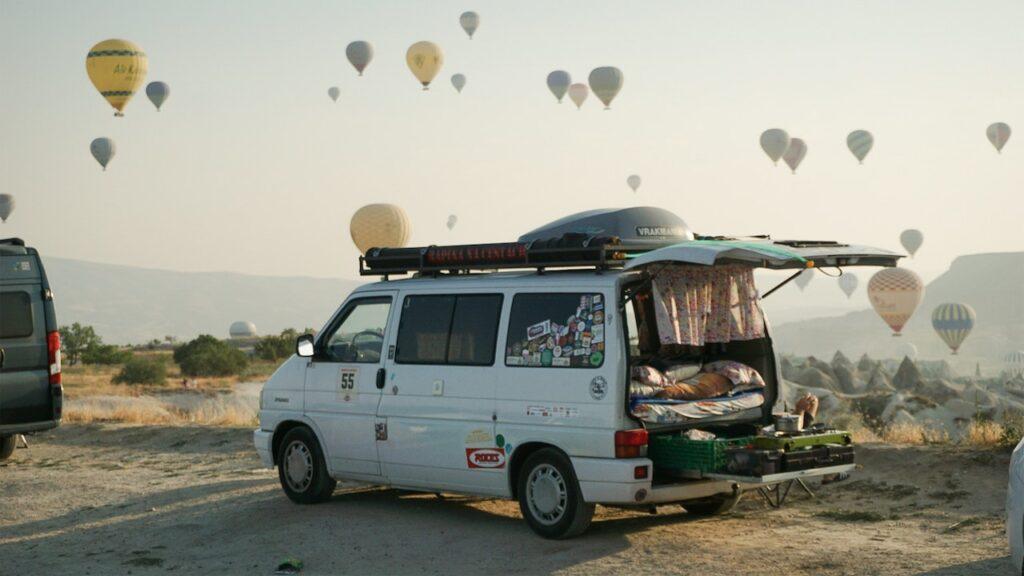
On average, RV air conditioners last 6 to 10 years depending on use and care. Factors like frequent operation in hot, dusty environments can reduce their lifespan. To extend the life of your RV AC, proper maintenance—including regular cleaning, power management, and usage practices—is crucial.
In this guide, we’ll cover the key factors that affect your RV AC’s lifespan, common signs it’s wearing out, and help you get the most out of your AC unit. Plus, we’ll give you advice on when it’s time to replace your AC to avoid costly repairs or breakdowns.
What’s the Average Lifespan of an RV AC Unit?
Typically, most RV air conditioners last around 6 to 10 years, depending on how you use them. If you’re a weekend camper who keeps up with basic care, you might get a full decade or more. But if you’re full-timing in hot, dusty places and running your AC day and night, don’t be surprised if it starts showing problems much sooner.
Here’s the thing, RV AC units work hard, and how long they last really comes down to a few simple things: how often you run it, how well you maintain it, and the environment you’re camping in. Think of your AC like an old friend; if you take care of it, it’ll take care of you. Skip the maintenance, let the coils get dirty, and crank it in the desert heat every day, and it’s going to wear out faster.
A lot of RVers have shared their stories, too. Some say their AC lasted over 15 years with regular cleaning, while others in hotter places like Texas had to replace theirs every 5 or 6 years. It’s a mixed bag, but the pattern is clear: good care can add years to your unit’s life.
So, while 6 to 10 years is the average, remember that how you treat your AC plays a big role. A little effort goes a long way in helping it stay cool and last longer.
What Factors Affect How Long an RV AC Lasts?
Factors that affect how long an RV AC lasts are:
- How often do you run the AC, and for how many hours at a time
- The climate and environment where you camp, including heat, humidity, dust, and salt air
- The brand, model, and how well the AC is built
- The quality of your power source, like voltage stability and generator use
- How well you keep up with regular RV air conditioner maintenance
You’re probably wondering, “Why does my neighbor’s AC last for 15 years, and mine’s already acting up after five?” Well, it’s not just bad luck—these little details make a big difference. Let’s break them down so you can figure out what might be shortening your RV AC’s lifespan and how to help it last longer.
1. Frequency and Duration of Use
Let’s be honest, if you’re running your RV air conditioner all day, every day in the Texas summer heat, it’s going to get tired a lot faster than if you only use it on weekends. RV AC units aren’t built like residential systems that cool big homes all year long. They’re more like the little workhorses of the RV world, and they can only handle so much.
Every hour you leave it humming in 90-degree heat, it’s adding wear and tear. The compressor works overtime, the fan motors push harder, and the whole system feels the strain. If you’re using it for 8 to 12 hours straight in extreme heat, that’s a different ballgame than running it for an hour or two on a mild evening.
If you can, give your AC a break when the weather allows. Open a window during cool mornings or evenings, or use a small fan inside. It might seem small, but over time, this can save years on your RV AC’s lifespan.
2. Climate and Environmental Conditions
Here’s something that gets overlooked way too often: where you camp affects your RV air conditioner’s lifespan. If you’re in hot, sticky places like Florida or Arizona, your AC is fighting hard against the heat and humidity. It’s like trying to run a marathon every day—it will wear out faster.
Dusty, dry environments are no friend to your AC either. That dust creeps into the filters and clogs the coils, making the whole system less efficient. And if you’re camping by the ocean? Salt air is sneaky. It corrodes the fins and electrical components slowly over time, and before you know it, your AC’s performance drops.
So if you’re wondering why your buddy’s AC is still going strong after ten years while yours is gasping for air after five, the climate might be the reason.
3. Brand, Model, and Build Quality
Let’s talk about brand differences. Not all RV air conditioners are built the same. Some of the better-known brands, like Dometic, Coleman, and Furrion, tend to have better reliability over time. They use sturdier materials, better internal components, and sometimes even better airflow design.
That doesn’t mean a cheaper AC won’t work, but it might not last as long, especially in tough conditions. If you’re a full-timer or someone who camps in extreme heat, investing in a high-quality RV AC upfront can save you the headache of early replacement.
Choosing the right model with enough BTUs for your RV space also matters. An undersized AC will struggle to keep up, leading to early burnout.
4. Power Supply and Electrical Conditions
This one catches a lot of RVers by surprise: poor power supply can quietly destroy your AC. If you’re parked at a campground with low voltage, or using a generator without a soft start or surge protector, your AC’s compressor can struggle to start. That hard start adds stress, leading to damage over time.
Ever heard that low humming noise when your AC tries to kick on but struggles? That’s your compressor begging for steady power. Using an RV surge protector or voltage monitor can help protect your air conditioner from inconsistent power. It’s like giving it the fuel it needs, at the right pressure, so it can do its job without extra strain.
5. Maintenance Habits
Let’s be real, when was the last time you cleaned your RV AC filter? If you had to think about it, it’s probably been too long. Regular RV air conditioner maintenance is the simplest and most effective way to make your unit last longer. And it doesn’t take much: cleaning the filters, wiping down the coils, checking for leaks, and making sure nothing is clogging the vents.
Neglect it, and dust and grime will build up, airflow will drop, and your AC has to work harder to push out the same cool air. That extra strain wears down the components, leading to breakdowns you could have easily avoided.
Some RVers share stories about how they’ve kept their AC running for 15 years or more—most of them credit simple, regular cleaning and a little TLC. Think of it like brushing your teeth. It’s not exciting, but if you skip it, you’ll pay for it down the road.
Signs Your RV AC Is Nearing the End
If your RV AC is on its last legs, you’ll start to notice a few clear signs. The most common signs your RV AC is nearing the end are:
- Weak or uneven cooling
- Strange noises like rattling or humming
- Water leaks inside or around the unit
- Bad smells when the AC runs
- Ice is building up on the coils
- Frequent circuit breaker trips
These issues usually don’t pop up all at once, but when they start to add up, it’s a sign your AC may not have much life left. Let’s break these down so you know what to look for.
- Weak Cooling: If your AC struggles to cool the RV, even on mild days, it’s a sign the compressor or refrigerant levels may be failing.
- Strange Noises: A rattling, grinding, or buzzing sound could mean loose parts, a dying fan motor, or worn-out bearings.
- Leaks: Water dripping inside the RV or around the unit could mean the drain lines are clogged, the seals are bad, or the system is icing up.
- Smells: A musty odor might mean mold inside the unit, while a burning smell could signal electrical trouble.
- Ice on Coils: If you see frost building up, it could mean low airflow, dirty coils, or refrigerant issues.
- Breaker Trips: If the AC keeps tripping breakers, it’s often a sign the compressor is pulling too much power, usually as it nears failure.
Spotting these early can help you decide whether to try a repair or start planning for a replacement.
Can You Make an RV AC Last Longer Than 10 Years?
Things you can do to make your RV air conditioner last longer than 10 years are:
- Clean the air filters regularly
- Wash the evaporator and condenser coils every year
- Use a surge protector and voltage monitor
- Don’t overwork the AC in extreme heat
- Install a soft start to reduce stress at startup
- Store the RV with a protective AC cover in the off-season
- Fix small problems before they get worse
Keeping your RV AC running for over a decade isn’t just luck, it’s about giving it the right care. Let’s go through some key steps and habits that can make a big difference.
Prolonging Your RV AC’s Life: Expert Tips
One of the best ways to help your RV AC last longer than 10 years is simple: clean it. Dirty filters and clogged coils make the system work harder than it should. If you clean your filters every few weeks, and wash the coils once a year, you’ll reduce the strain on the motor and compressor.
Another smart move is using a surge protector and a voltage monitor. Bad campground power can fry your AC. A soft start kit also helps by easing the load on the compressor during startup, preventing those hard jolts that wear it down.
Lastly, give your AC a break when you can. Don’t run it full blast in 100-degree heat all day if you can avoid it. Park in the shade, close blinds, and run a small fan to circulate air. Small changes like this help keep the AC from overworking.
What Shortens RV AC Lifespan
There are a few habits that can quietly kill your AC faster than you might think. Running your AC nonstop in hot climates, like Arizona or Florida, will wear it out faster. Low voltage is another silent killer; if the power drops too low, your compressor struggles and may eventually fail.
Skipping maintenance is a big one, too. Dirty filters, clogged coils, and blocked vents all make the AC work harder than it should. And ignoring little problems, like strange noises, water leaks, or bad smells, often leads to bigger, more expensive failures down the road.
If you want your AC to go the distance, give it a little care, and it’ll thank you with many more years of cool, reliable service.
How Long Can You Run an RV AC Continuously?
You can run your RV AC continuously as long as you’ve got steady power, but running it 24/7 for days can wear it down faster. If you’re running your RV AC on a generator instead of shore power, it’s important to make sure the generator is properly sized for the load. Choosing the right setup matters, especially if you rely on a portable system, our guide on how to choose a generator for van life can help you figure out exactly what you need. Think of your AC like an old work truck, it’ll keep going if you treat it right, but push it too hard for too long, and it’s going to show its age.
Now, I get it. You’re in Arizona, it’s 102 degrees outside, and your AC is the only thing keeping you from turning into a puddle. You might feel like you have to keep it on all day and night. And you can, but here’s the catch: the more you make that AC run without a break, the harder the compressor has to work. Over time, that constant strain can cut years off its life.
So what’s the best move? If you’re on shore power and it’s safe to keep running, go ahead, but give it a little help. Close blinds, park in the shade, and crack a window at night if it’s cooler outside. If you’re using a generator, check the run limits; it’s no fun when your generator quits at 3 a.m., leaving you sweating in the dark. Small habits can help your RV AC last longer and run smoother, even when the heat won’t let up.
When Should You Replace an RV AC Unit?
You should replace your RV AC unit when it stops doing its job—plain and simple. If your RV AC is blowing warm air, making weird noises, leaking water inside, or just struggling to keep up, it’s time to think about a new one. Most RV AC units last 6 to 10 years, but if yours is over 8 and showing signs of trouble, it’s usually smarter to replace it than keep pouring money into repairs.
Here’s how you’ll know it’s time:
- Weak Cooling: If your AC struggles to cool your RV, even on mild days, it’s a red flag.
- Strange Noises: A rattle here, a grinding there—it’s like your AC is trying to tell you it’s tired.
- Leaks Inside: Water dripping down the walls or pooling on the floor? That’s not normal. It could be a clogged drain or a bad seal.
- Bad Smells: Musty, moldy, or even burnt smells can mean bigger problems—mold inside the unit or electrical issues.
- Tripping Breakers: If your AC keeps shutting off the power, the compressor might be pulling too much juice, and that’s usually a sign it’s on its way out.
- Frequent Repairs: If you’ve called in help more than once for the same problem, it’s time to stop patching and start fresh.
I know it’s a big decision, replacing an AC isn’t cheap. But trust me, being stuck in 90-degree heat with no cool air is worse.
How Much Does It Cost to Replace an RV AC?
The cost to replace an RV AC usually runs between $800 and $1,500, depending on the unit you pick and whether you hire someone or go the DIY route. If you hire a tech, labor could add another $200 to $500. And don’t forget, you might need new seals or parts during installation, which could add a little more.
Here’s a breakdown so you’re not blindsided:
- New RV AC unit: Most standard models cost between $600 and $1,200. Premium or high-BTU units for larger rigs can go up to $1,500 or more.
- Installation labor: Expect to pay $200 to $500 if you hire a pro.
- Extra parts: Gaskets, seals, or new thermostats could add $50 to $150.
- DIY savings: If you’re handy and have the right tools, you can skip labor costs, but it’s not a quick afternoon job.
If you’re staring at an AC that’s dying fast, it’s good to know the ballpark. This way, you won’t feel caught off guard when it’s time to shop for a replacement.
How to Choose a Long-Lasting RV AC Unit
To choose a long-lasting RV AC unit, look for a trusted brand, the right BTU size for your RV, and features that match your camping style, like quiet operation or low power use. It’s not just about grabbing the cheapest one off the shelf; it’s about getting an AC that can handle your life on the road.
Here’s what you want to check before you buy:
- Reliable brands: Stick with names like Dometic, Coleman, or Furrion. These brands have been tested by RVers in all kinds of conditions.
- Proper BTU size: A 13,500 BTU unit is good for smaller rigs, while a 15,000 BTU is better for bigger RVs or hotter climates.
- Build quality: Look for sturdy shrouds, sealed coils, and corrosion-resistant materials, especially if you camp near the ocean.
- Energy efficiency: Units with soft start options or better airflow design will last longer and put less strain on your generator or shore power.
- Noise levels: Quieter units can make a huge difference if you’re full-timing or have little ones on board.
- Power compatibility: Make sure the unit works with your setup—whether that’s a 30-amp RV, a 50-amp, or a portable generator for RV air conditioners.
- Warranty support: It’s worth paying a little more for a unit that comes with solid warranty coverage and easy-to-find replacement parts.
A long-lasting RV air conditioner isn’t just a purchase, it’s peace of mind when you’re out there on the road, chasing sunsets, and not worrying about when your cool air is going to give up.
Final Thoughts
Your RV air conditioner is one of the hardest-working parts of your rig, especially during long summer trips or full-time RV living. Knowing how long an RV AC lasts and what factors affect its lifespan helps you stay ahead of breakdowns and avoid unexpected repairs. With most RV AC units lasting between 6 and 10 years, giving your system proper care, like cleaning filters, using a soft starter, and managing voltage, can stretch those years and keep your RV cool and comfortable.
When it comes to replacing an RV AC unit, it’s smart to watch for signs like weak cooling, strange noises, leaks, or bad smells. Sometimes you can replace small parts, but in many cases, it’s better to install a new, high-quality AC that’s the right size for your RV. Whether you’re running your AC on a generator or shore power, taking steps like managing voltage and using a dehumidifier can make a big difference.
In the end, maximizing your RV AC’s life is about a little attention, regular maintenance, and smart choices. Your AC is there to make your adventures cooler and more comfortable, give it the care it deserves, and it’ll keep you chill for many miles ahead.
Related FAQs
How Many Years Does an RV AC Usually Last With Proper Maintenance?
Most RV AC units last 6 to 10 years with proper care, but some can go beyond 10 years if you clean filters, check coils, and avoid overloading the system.
Can I Replace Individual AC Components Instead of the Whole Unit?
Yes, you can often replace parts like capacitors, fans, or control boards in an RV AC, but if the compressor fails or leaks develop, replacing the entire unit is usually the smarter choice.
Does Running an AC While Driving Damage It?
No, running your RV AC while driving won’t damage it, as long as your power source (like an onboard generator) can handle the load safely. Just make sure your system is wired to support this setup.
Is It Safe to Use a Soft Starter or Hard Start Kit on an RV AC?
Yes, it’s safe to use a soft starter or hard start kit on an RV AC. These devices help reduce startup strain on the compressor, making it easier to run the AC on lower power or with a generator.
Should I Run My AC on a Generator or Shore Power for Longer Life?
Shore power is the safer option for long-term use, but a properly sized generator with voltage protection can also run your RV AC without issues. Just avoid low-voltage conditions, which can harm your AC over time.
Can a Small Dehumidifier Help My AC Work Better?
Yes, a small dehumidifier can help your RV AC work better by reducing moisture in the air, which makes it easier for the AC to cool your RV. This can also prevent mold and musty smells inside.

Jack Rivers is a long-time RVer, a husband, and a dad who’s traveled solo and now with his family. He’s learned a lot from years on the road, sometimes the hard way. From quiet mornings parked by the woods to messy evenings with the kids and a busted heater, he’s been through it all. Miles writes to share the real stuff, the small wins, and the lessons that make RV life worth it, no matter who you’re traveling with.







